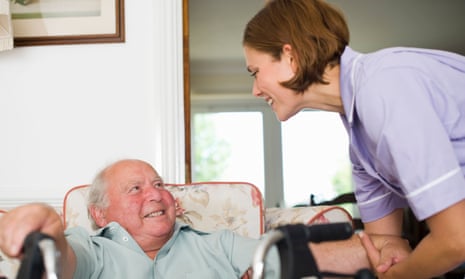Loneliness and the impact it has on health and wellbeing has hit the headlines again. This time it’s been linked to a 30% rise in the risk of stroke or coronary artery disease – already among the biggest killers in the UK.
Researchers behind the study say it ties in with wider public health concerns about the importance of social interaction on good health and wellbeing.
For many years, housing associations have quietly played a role in building homes designed to tackle loneliness, encourage social interaction and boost wellbeing.
From sheltered housing and extra care schemes to whole retirement villages with fitness suites and activity rooms, these homes may have different names but the overarching aim of them is the same: to help older people remain independent and socially engaged.
Yet, just as research reveals the terrible impact that social isolation can have on physical health, the housing that plays such an important role in tackling it is under threat.
The local housing allowance (LHA) cap is set to see new residents of supported and sheltered housing, managed by housing associations, have their rent levels capped to the allowance rate in the private-rented sector.
While initially set to be implemented from 2016-17, a year’s grace has been given for the government to review the proposal and have a new funding mechanism in place prior to April 2018.
However, the continued risk that a cap might be imposed in the future means substantial uncertainty remains for both residents and housing associations.
Through supported and sheltered housing, housing associations provide homes to thousands of older and disabled people up and down the country.
Some of these include older people who have downsized from large homes that physically didn’t meet their needs any more and that had left them emotionally cut off and lonely.
If the LHA cap is applied to those living in supported housing schemes, some rent levels will be higher than the level of the cap, meaning residents will have to make up the shortfall.
For vulnerable elderly and disabled people with limited incomes this could have a catastrophic impact on their lives and their standard of living.
There is concern that it will put residents off moving into the homes that will have significant health and wellbeing benefits for fear of having to make up a shortfall in funding.
There is an indication that new housing schemes have been put on ice until a clearer way forward is known. Earlier this year, Tony Stacey – chief executive of South Yorkshire Housing Association warned that the cap would mean many supported housing schemes would be unviable.
The benefits of supported and retirement housing on people’s health aren’t anecdotal. A three-year study by Aston University in Birmingham for the ExtraCare Charitable Trust, found their village housing model delivered a 14.8% reduction in depressive symptoms over 18 months. This was accompanied by a 64.3% reduction in people with significant clinical level depression over the same period.
Yet it’s this very kind of housing that could be placed at jeopardy if this cap is introduced. The housing sector can, and is, playing a key role in alleviating some of the root causes of loneliness, such as inappropriate housing, isolation and poor health.
We only hope this can continue once the one year exemption comes to an end.
Join the Guardian Housing Network to read more pieces like this. Follow us on Twitter (@GuardianHousing) and like us on Facebook to keep up with the latest social housing news and views.
